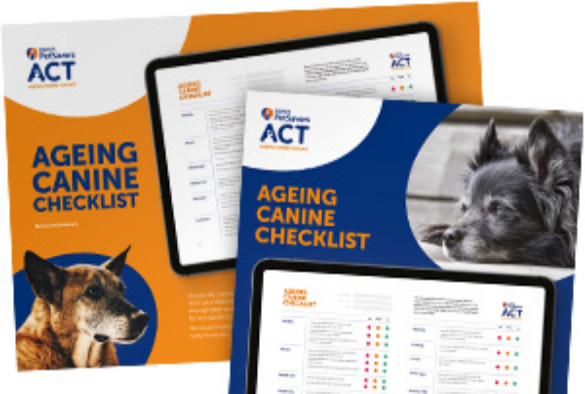University and BSAVA PetSavers launch Ageing Canine Toolkit

Researchers at the University of Liverpool, in collaboration with the British Small Animal Veterinary Association (BSAVA), have developed a toolkit to help inform the best care for senior and geriatric dogs.
With pets now living for up to twice as long as they did 40 years ago, and the related implications for their healthcare, the BSAVA PetSavers Ageing Canine Toolkit (ACT) will be an important wellbeing asset for both vets and owners.
Part of a major University of Liverpool study, the Old Age Pets research project, funded by BSAVA PetSavers, the ACT includes a traffic light colour coded checklist for owners, along with a leaflet containing information that ties in with the checklist topics.
The recognition of diseases in dogs is often dependent on owners reporting physical and behavioural changes to their vet, but many find it difficult to know what are ‘normal’ age-related changes (signs of ageing) or whether signs indicate possible disease that would benefit from veterinary advice and treatment.
As part of the checklist, answers of ‘yes’, ‘no’ and ‘maybe’ are coded according to traffic light colours to aid recognition of areas of concern, and clients are encouraged to seek advice from their veterinary practice for any red or amber responses.
The questions are grouped into health topics such as ‘dental’, ‘mobility’ and ‘weight changes’, representing some of the main reasons why senior dogs visit the vet. But the checklist does not shy away from the more challenging issues such as ‘behaviour’, ‘confusion’ and ‘quality of life’. A separate section explores concerns over the sensitive topic of ‘end of life’.
The leaflet recommends working through the checklist at least every 6 months, keeping completed versions for comparison, and includes several copies of the checklist to monitor dogs as they age.
Professor Carri Westgarth from the University of Liverpool said: “We conducted this research project kindly funded by Petsavers in order to help owners and veterinary professionals provide great care for our loved pets as they age. Our investigations uncovered common physical and behavioural signs in dogs that owners observe and for which support from the veterinary practice would be beneficial. Our simple evidence-based checklist is designed to engage owners and importantly stimulate efficient discussion with their veterinary team.”